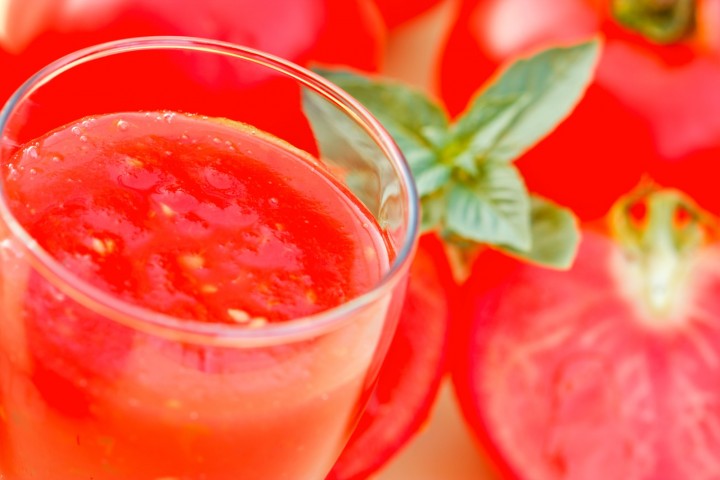
Photo: Gordan Jankulov – Fotolia
Umami is a word taken from Japanese and translates to “pleasant, savoury taste”. It is a scientifically accepted term for the taste of glutamates, a naturally occurring substance that is also in mono-sodium glutamate. Scientists discovered that when airplane noise goes above 85 decibels, people’s sensitivity to sweetness is suppressed and while umami is enhanced. And it turns out that tomatoes are very umami-rich. So when in flight, people should skip anything that is sweetened, because the taste will be lost on them, and go for tomato juice, or a Bloody Mary, if you want alcohol.
The discovery opens up quite a few possibilities for how to make airplane food more tasty, which we can all drink to. In fact, some airlines had already noticed this phenomenon. The German airline Lufthansa noticed that passengers were drinking as much tomato juice as beer, which, if you believe the cultural stereotypes, must have come as quite a shock. Lufthansa did an internal study that concluded that cabin pressure enhanced tomato juice taste. The Cornell research says it was in fact the noise.
Robin Dando, assistant professor of food science at Cornell, said, “Our study confirmed that in an environment of loud noise, our sense of taste is compromised. Interestingly, this was specific to sweet and umami tastes, with sweet taste inhibited and umami taste significantly enhanced. The multisensory properties of the environment where we consume our food can alter our perception of the foods we eat.”
People have long known that the perception of flavour does not solely depend on the taste of the food or drink they are ingesting, but also the smell. If you ever have a cold and your nasal passages are blocked, food will taste different. Now it turns out that sound also affects flavour perception.
“The multisensory nature of what we consider ‘flavor’ is undoubtedly underpinned by complex central and peripheral interactions,” said Dando. “Our results characterize a novel sensory interaction, with intriguing implications for the effect of the environment in which we consume food.”
In other words, maybe one day a restaurant or an airline will adjust the lights, the sounds and the temperature in specific ways to manipulate how we taste the food.
Share your thoughts, leave a comment below. Please like FamiLife’s page on Facebook so that you get all our articles and others may find us.
